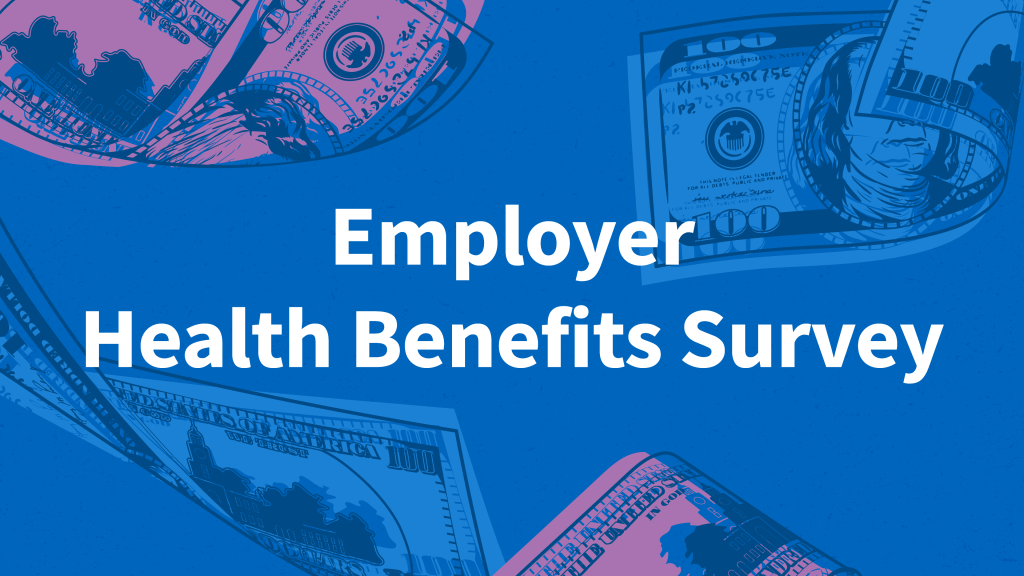Online Tools for Consumer-Directed Health Plans
On Jan. 25, 2005, Kaiser Family Foundation hosted a demonstration of the online tools made available to enrollees in consumer-directed health plans.
The independent source for health policy research, polling, and news.
KFF’s policy research provides facts and analysis on a wide range of policy issues and public programs.
KFF designs, conducts and analyzes original public opinion and survey research on Americans’ attitudes, knowledge, and experiences with the health care system to help amplify the public’s voice in major national debates.
KFF Health News is a national newsroom that produces in-depth journalism about health issues and is one of the organization’s core operating programs.
KFF has conducted this annual survey of private and non-federal public employers with three or more workers since 1999. The survey tracks trends in employer health insurance coverage, the cost of that coverage, and other topical health insurance issues. Findings are based on a nationally representative survey of public and private employers with three or more employees, including those who respond to the full survey and those who indicate only whether or not they provide health coverage. Browse the reports
On Jan. 25, 2005, Kaiser Family Foundation hosted a demonstration of the online tools made available to enrollees in consumer-directed health plans.
This survey documents the increasing costs of retiree benefits for both large private-sector employers and their retirees. It also provides an early look at the response of large employers to the Medicare prescription drug law and the subsidies it provides for maintaining retiree drug coverage. Download Full Report (.pdf) Chartpack (.
Current Trends and Future Outlook for Retiree Health Benefits: Findings from the Kaiser/Hewitt 2004 Survey on Retiree Health Benefits A new survey of large employers finds businesses and retirees experienced double-digit increase in retiree health costs, with further increases expected in 2005.
The 2003 Kaiser Family Foundation Health Insurance Survey examines the public's level of satisfaction with their insurance coverage, their expectations of health insurance, the role of costs and other factors in health insurance decision-making, and attitudes toward employer-sponsored coverage.
The 2003 Kaiser Family Foundation Health Insurance Survey examines the public's level of satisfaction with their insurance coverage, their expectations of health insurance, the role of costs and other factors in health insurance decision-making, and attitudes toward employer-sponsored coverage.
The 2003 Kaiser Family Foundation Health Insurance Survey examines the public's level of satisfaction with their insurance coverage, their expectations of health insurance, the role of costs and other factors in health insurance decision-making, and attitudes toward employer-sponsored coverage.
Exhibit 12.1 Exhibit 12.6 Exhibit 12.2 Exhibit 12.7 Exhibit 12.3 Exhibit 12.8 Exhibit 12.4 Exhibit 12.9 Exhibit 12.
Exhibit 12.1 Exhibit 12.6 Exhibit 12.2 Exhibit 12.7 Exhibit 12.3 Exhibit 12.8 Exhibit 12.4 Exhibit 12.9 Exhibit 12.5 12 Kaiser Family Foundation, Kaiser Commission on Medicaid and the Uninsured. Health Insurance Coverage in America, 2002 Data Update, December 2003.
Exhibit 11.1 Exhibit 11.4 Exhibit 11.2 Exhibit 11.5 Exhibit 11.3 11 Twenty-eight percent of Medicare beneficiaries receive prescription drug coverage from an employer, a far higher number than receive coverage through a Medicare HMO (15%), Medigap (7%) or Medicaid (10%). Laschober et. al., Health Affairs, February 2002.
Exhibit 10.1 Exhibit 10.5 Exhibit 10.2 Exhibit 10.6 Exhibit 10.3 Exhibit 10.7 Exhibit 10.4 10 A self-funded plan is one in which the employer assumes direct responsibility for the costs of enrollees’ medical claims. Employers sponsoring self-funded plans typically contract with a third-party administrator or insurer to provide administrative services for the self-funded plan.
© 2026 KFF
